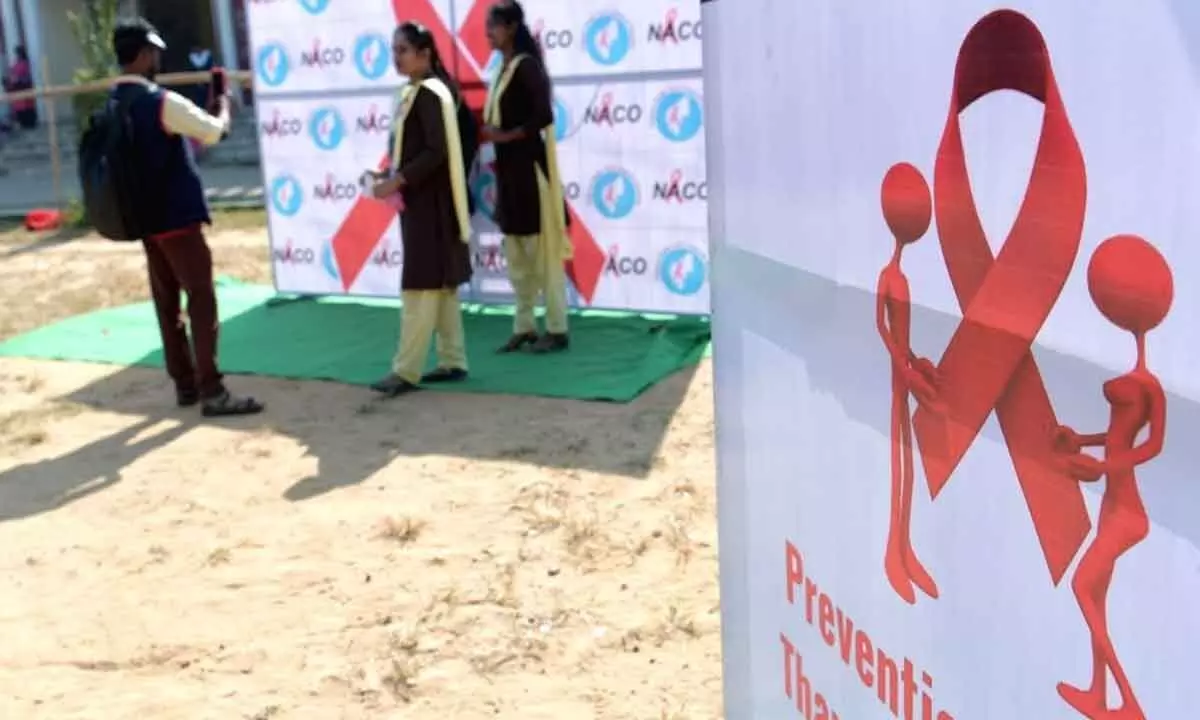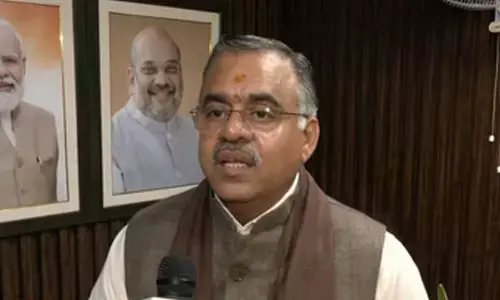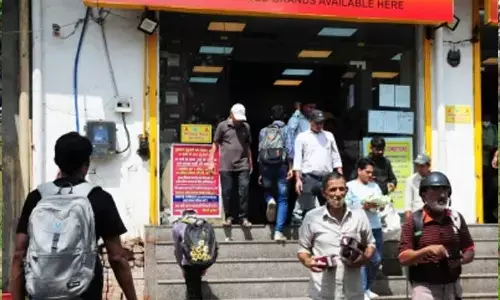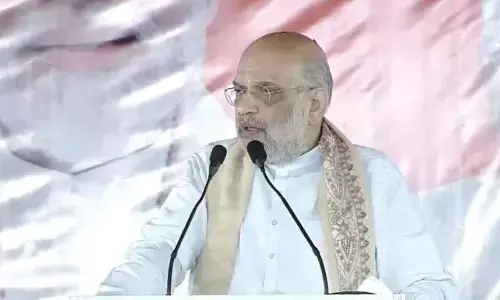Inequalities that fuel & fodder HIV/AIDS

The World AIDS Day on December 1 recapitulated those working in the government and public health space that HIV has not gone away, it still exists - there is still a vigorous need to address inequalities, increase awareness, fight stigma, discrimination and prejudice.
The World AIDS Day on December 1 recapitulated those working in the government and public health space that HIV has not gone away, it still exists - there is still a vigorous need to address inequalities, increase awareness, fight stigma, discrimination and prejudice.
We have been almost four decades into the HIV response; however, inequalities still persist for the most basic services like testing, treatment, and condoms, and even more so for new technologies. This World AIDS Day, the theme has been 'Putting Ourselves to the Test: Achieving Equity to End HIV'.
Deep inequalities among populations and geographies are eminent across the world, inequalities come in myriad of signs like poverty, gender, low incomes, declining levels of education, disability, limited access to services and ART due to geographical challenges, limited access to the labour market, and limited autonomy in decision-making.
Despite the virus being identified in 1984, more than 35 million people have died of HIV or AIDS related illnesses, making it one of the most critical pandemics in history. In accordance with the Sustainable Development Goals, India is committed to 'Ending the AIDS' epidemic as a public health threat by 2030.
Globally, an estimated 38 million people are infected with HIV. At the national level, estimated adult HIV prevalence (15-49 years) has decreased since the epidemic's peak in 2000, with prevalence expected to fall to 0.21 per cent in 2021 from 0.55 per cent in 2000. Adult HIV prevalence is highest in northeastern states (2.70 per cent in Mizoram, 1.36 per cent in Nagaland, and 1.05 per cent in Manipur), followed by southern states (0.67 per cent in Andhra Pradesh, 0.47 per cent in Telangana, and 0.46 per cent in Karnataka).
The number of People Living with HIV (PLHIV) are estimated at around 24 lakh. Southern states have the largest number of PLHIV viz. Maharashtra, Andhra Pradesh and Karnataka being the top three.
Annual New Infection (ANI) is estimated at 62.97 thousand in 2021 in India. There is an estimated 46.3 per cent decline in annual new infections at national level from 2010-2021. A declining trend is noted in most States. Top three states with most rapid decline is Himachal Pradesh (with around 73 per cent decline from 2010-2021), Tamil Nadu (around 72 per cent decline), and Telangana (nearly 71 per cent decline).
India has time and again committed to 'Ending the AIDS' epidemic as a public health menace by 2030 in line with Sustainable Development Goals (SDG). This commitment was reaffirmed at the United Nations General Assembly in June 2016 during the high-level meeting on AIDS, as well as at other platforms such as BRICS. As a UN member state, the Government of India has adopted a new set of ambitious targets by UNAIDS, calling for 95 per cent of all people living with HIV to know their HIV status, 95 per cent of all people with diagnosed HIV infection to receive sustained antiretroviral therapy, and 95 per cent of all people receiving antiretroviral therapy to have viral suppression by 2025.
Data from UNAIDS on the global HIV response reveals that during the last two years of Covid-19, progress against the HIV pandemic has faded, resources have shrunk, and millions of lives are at risk as there was disruption in ART services.
As per UNAIDS report, one-third of people in key populations like transgender people, people who use drugs, sex workers, MSM, bridge populations have had regular prevention access.
The National AIDS Control Programme (NACP), launched in 1992, is being implemented as a comprehensive programme for prevention and control of HIV/AIDS in India. Over time, the focus has shifted from raising awareness to behaviour change, and from a national response to a more decentralised response, as well as an increase in involvement of NGOs and networks of PLHIV. Achieving this goal will need us to 'Fast-Track' strategies laid down in National strategy play of NACO.
Increase accessibility, availability, quality of services for HIV treatment, testing and prevention, so that we reach the last mile and no one is left behind. Reform laws, policies and practices to tackle the stigma and discrimination faced by people living with HIV and by key and marginalised populations, so that everyone is treated with dignity.
With reference to recently published series of papers submitted to the Economic Advisory Council, early initiation of antiretroviral treatment (where HIV patients are provided with medicines regardless of how depleted their white cell count is) has a very high BCR in the good range when compared to treatment only when white cell count drops below a defined level. There have been some studies from India, which has shown cost and benefit translates to a BCR of 8 or 9.
The National AIDS Control Programme includes -- 1. Intensifying and consolidating prevention services with a focus on HRG and vulnerable populations; 2. Expanding IEC services for (a) general population and (b) high risk groups with a focus on behaviour change and demand generation; 3. Comprehensive care, support and treatment, which will include (i) antiretroviral treatment (ART) including second line, (ii) management of opportunistic infections, (iii) facilitating social protection through linkages with concerned departments/ministries; 4. Strengthening institutional capacities and Component 5: Strategic Information Management Systems (SIMS).
Some of the key interventions strategised in NACO strategy plan 17-24 are:
1. Elimination of Mother to Child Transmission of HIV by scaling up the screening of all pregnancies, every HIV positive pregnant woman identified has to be put on ART inpartnership with private sectors and health systems.
2. Prevention of new infections among High-Risk Groups (HRGs), through community engagements, linkage to services, PPP.
3. Capacity building and Strengthening of the communities and NGO's, as they have been the main pillars of support for ensuring that the government services reach the needy through targeted interventions, mainstreaming, IEC and BCC activities. Innovative approach to reach the unreached, challenged geographies, to reduce the linkages loss from ICTC and tracing the lost to follow-up cases would be focussed to achieve the target of people who know their HIV status.
4. Provision of ARV drugs especially second line andthird line drugs, including TLD and DTG as per the recommendation of technical resource group for adult treatment.
5. ART care and treatment services to all PLHIV.
6. The private sector can be engaged to reach targets of 95-95-95. Scope of PPP- ART centre can also be explored and there is a need to develop systems for private Sector Engagement across HIV care continuum and to scale up services and build sustainability.
7. Capacity building of service providers like medical, non-medical, technicians, administrators etc.
8. Addressing the TB challenges, provision of containing TB, through proper treatment and nutrition as India has the highest burden of Latent TB Infection (LTBI).
India has come a long way in addressing the AIDS epidemic. Strong political will along with concerted and collective efforts and participation of those infected or affected by HIV, NGOs/CBOss, have contributed immensely in pushing back the epidemic to a large extent. Indeed, AIDS can only be eradicated if we address the inequalities that fuel and fodder it. All of us, everywhere, must do everything we can to help combat inequalities and thus eradicate AIDS.
(Dr Manorama Bakshi, a public health professional, is Head, Health Care and
Advocacy, Consocia Advisory; the views
expressed are personal)










